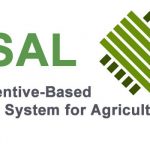The House of Representatives has called on the Central Bank of Nigeria (CBN) to allocate an additional $3 billion in funding to small-scale farmers through the Nigeria Incentive-Based Risk Sharing for Agricultural Lending (NIRSAL). This initiative aims to enhance agricultural productivity and address the financing challenges in the sector.
The motion, titled “Repositioning Nigeria Incentive-Based Risk Sharing System for Agricultural Lending and De-risking of Agribusiness in Nigeria,” was adopted during plenary on Tuesday, moved by Rep. Uchenna Okonkwo, who represents the Idemili North/Idemili South Federal Constituency in Anambra State.
During the debate, Okonkwo highlighted that NIRSAL was launched in 2011 as a $500 million public-private initiative designed to assess and mitigate agribusiness credit risks. He emphasized that the objectives of NIRSAL include enhancing agricultural value and financial value chains by promoting best practices in financing, loan utilization, and repayment, thereby minimizing the risks associated with agricultural lending.
Okonkwo pointed out that the agricultural sector accounts for 40% of Nigeria’s Gross Domestic Product and provides over 60% of employment. However, he noted that the sector has experienced sluggish growth and underperformance despite its vast potential. He argued that addressing the issue of underfunding in agricultural value chains is critical, hence the proposal for an additional $3 billion to support agricultural value chain actors in Nigeria.
The Representative also underscored the importance of creating a conducive lending environment for farmers. He suggested reducing the banks’ break-even interest rate for agricultural borrowers to between 7.5% and 10.5%. This reduction is crucial for encouraging more banks to lend to small-scale farmers, who often face high-interest rates that deter them from accessing necessary funds for their operations.
Following the adoption of the motion in a voice vote, the House urged the CBN to increase agricultural lending by banks from 1.4% to 7% of total lending within the next five years. They also stressed the importance of ensuring that 50% of this lending reaches smallholder farmers through microfinance institutions, farmer cooperatives, and value chain commodity associations at the proposed interest rates.
In addition to addressing funding, the House has mandated the Committees on Banking Regulations, Agricultural Production and Services, Nutrition and Food Security, and Finance to monitor compliance with these directives. They are expected to report back within four weeks for further legislative actions.
This move aligns with ongoing efforts to strengthen Nigeria’s agricultural sector, which is vital for food security and economic stability. By providing targeted financial support and encouraging banks to lend to farmers, the government aims to unlock the potential of the agricultural sector, improve livelihoods, and foster sustainable economic growth.
In conclusion, the House of Representatives is taking a significant step towards revitalizing the agricultural landscape in Nigeria. By urging the CBN to increase funding and make lending more accessible, they are not only addressing the immediate challenges faced by farmers but also laying the groundwork for a more robust agricultural economy that can benefit millions across the nation and beyond.










